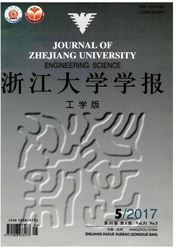

 中文摘要:
中文摘要:
为满足超磁致伸缩材料精密加工异形孔的刚性、稳定性等要求,根据材料驱动特性对空间柔顺构件多个性能参数(驱动刚度、抗扭转刚度和一阶固有频率)进行优化设计,给出一种基于正交仿真试验和遗传算法的多目标优化方法.该方法通过主结构离散参数值的正交排列组合和有限元仿真获得两者的映射试验表,再采用回归拟合的方法建立各性能参数与主要结构参数的优化模型,经多目标遗传算法获得一组最优解,使柔顺构件弯曲变形量、扭转变形量、一阶固有频率分别为51.6um、3.3um、849.7 Hz,满足超磁致伸缩驱动特性和异形孔精密加工的要求.
 英文摘要:
英文摘要:
To satisfy the rigidity, stability and other requirements of non-cylinder pinholes precision machining by the spatial flexible-components and giant magnetostrictive material (GMM), the driven characteristics of GMM and multi-objective optimization of its performances were studied, such as the driving stiffness, torsional stiffness and first natural frequency. Then the main structural parameters of spatial flexible-components were analyzed which can influence each performances, and a kind of multi- objective optimization methods of flexible-components were given based on orthogonal test, finite element simulation and genetic algorithm. And through the orthogonal permutation and combination of the discrete values of main structural parameters, then get a mapping test table with finite element simulations. After each performance parameters and the main structural parameters optimization models were build by regression fitting method. The multi-objective of spatial flexible-component performances were optimized by the multi-objective genetic algorithm. Then a group of optimal solution of main structural parameters were got, and the bending deformation reached 51.6urn, the torsional deformation was 3.3urn, and first natural frequency was 849.7 Hz, which all met the driven characteristics of GMM and basic requirements of non-cylinder pinholes precisely machining.
 同期刊论文项目
同期刊论文项目
 同项目期刊论文
同项目期刊论文
 期刊信息
期刊信息
